Workshops
Workshops Timetable:
Workshops will be run on all three days of the conference i.e. 2, 3 and 4 December 2025.
Tuesday 2nd Dec 2025

Presenters/Facilitators: Mr. Charles Lamens (Interpol DVI Unit)
Date: 2nd Dec 2025 | Time: 2:30 - 4:30 PM
Cost: 200 SAR
Target Audience: Disaster Victim Identification specialists, crime scene investigators, investigating agencies, criminalists, forensic scientists; students attending forensic programs science
Prerequisites: Interest in Disaster Victim Identification
Maximum Participants: 30
Description: The INTERPOL DVI unit will deliver a unique workshop on Disaster Victim Identification (DVI), where we will delve into the procedures and best practices for identifying victims in difficult circumstances. We will share our experiences and insights on how to achieve 100% certainty in identification, even in the most complex cases. The workshop will be illustrated by a real-life mission: the MH17 plane crash in 2014. The speaker was involved in the identification process and will share lessons learned and challenges overcome during this operation. Through a combination of presentations, case studies, and interactive discussions, participants will gain a deeper understanding of the DVI process and how to apply it in challenging situations.
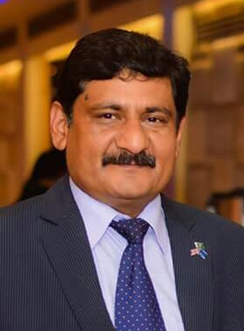
Presenters/Facilitators: Mr. Akbar Ali M. Phil
Date: 2nd Dec 2025 | Time: 2:30 - 4:30 PM
Cost: 200 SAR
Target Audience: Latent finger printing experts; criminalists, forensic scientists; students attending forensic programs science
Prerequisites: Awareness of latent fingerprinting
Maximum Participants: 25
Description: In this workshop, the latest Quality Assurance (QA) and Quality Control (QC) practices in fingerprint laboratories will be presented. We will focus on methods to ensure the accuracy, reliability, and consistency of fingerprint analysis. This includes proficiency testing in standardized protocols, regular audits, and the implementation of admin and technical reviews to maintain high standards and minimize errors in forensic work. Highlight the role of laboratory accreditation such as ISO/IEC 17025 in maintaining a high level of proficiency. This ensures labs meet international standards and demonstrate their competence in fingerprint analysis, leading to greater reliability in the criminal justice system.
The workshop will address the importance of validating and verifying methodologies, equipment, and personnel competency in fingerprint analysis. Rigorous testing ensures that any new tools or techniques used in the lab are accurate and reliable before they are integrated into routine case work. Additionally, competency testing for laboratory personnel is crucial to ensure that analysts maintain the necessary skills and proficiency to handle complex fingerprint processing and comparison tasks.
The workshop will consider the use of known control samples and how that allows the lab to assess the performance of fingerprint analysis methods and equipment as part of Quality Control (QC) procedures. These samples help to verify the effectiveness of techniques, ensuring the system functions correctly before processing actual evidence. This QC process is essential for validating the reliability and accuracy of results in real casework.
It will also emphasize the need for ongoing training, professional development, and updates to standards like OSAC in response to advancements in forensic science. Continuous improvement initiatives in fingerprint labs ensure that forensic professionals stay current with new technologies and methodologies to maintain high standards of practice.

Presenters/Facilitators: Dr. Ahmed Al Asmarai PhD & Dr. Torki Zugaibi PhD
Date: 2nd Dec 2025 | Time: 2:30 - 4:30 PM
Cost: 200 SAR
Target Audience: Forensic Toxicologists; toxicologists; forensic chemists; forensic scientists; students attending forensic science programs
Prerequisites: Awareness of forensic toxicology
Maximum Participants: 30
Description: This workshop delves into methamphetamine—a substance with profound historical, chemical, and societal impacts. Participants will explore the drug’s origins, its severe effects on mental health, cutting-edge forensic detection techniques, and case studies highlighting its real-world consequences. It provides an excellent opportunity for collaboration and knowledge-sharing among experts in forensic medicine, toxicology, and related disciplines. This workshop has been organised by the Saudi Society of Clinical Chemistry & the Saudi Scientific Working Group for Forensic Toxicology (SSWGTOX)
Moderator (Session 1): Special Toxicological Analysis Expert
• Introduction to the History of Methamphetamine (Shabu) An exploration of methamphetamine's origins, its global presence, and regional relevance.
• Addiction and Mental Health Disorders Related to Methamphetamine A detailed examination of the psychological and behavioural effects of methamphetamine abuse.
• Advancements in Forensic Toxicology: Detection of Methamphetamine Insights into the latest forensic toxicology techniques for detecting methamphetamine.
• Panel Discussion Facilitated discussions to enhance understanding and share professional insights.
Break
Moderator (Session 2): Expert in Forensic Medicine and Science
• Methamphetamine-Related Fatalities: Case Overviews Analysis of methamphetamine's role in fatalities, based on forensic medicine case studies.
• Epidemiological Overview of Methamphetamine Abuse and Fatalities in Saudi Arabia A review of regional data and trends to understand the prevalence and impact of methamphetamine abuse.
• Panel Discussion Closing dialogue to summarize and reflect on key insights.
Significance of the Workshop The rise in methamphetamine abuse presents critical challenges in public health and forensic science. This workshop seeks to enhance understanding, foster professional collaboration, and contribute to effective solutions for addressing this growing concern in Saudi Arabia and the broader region.
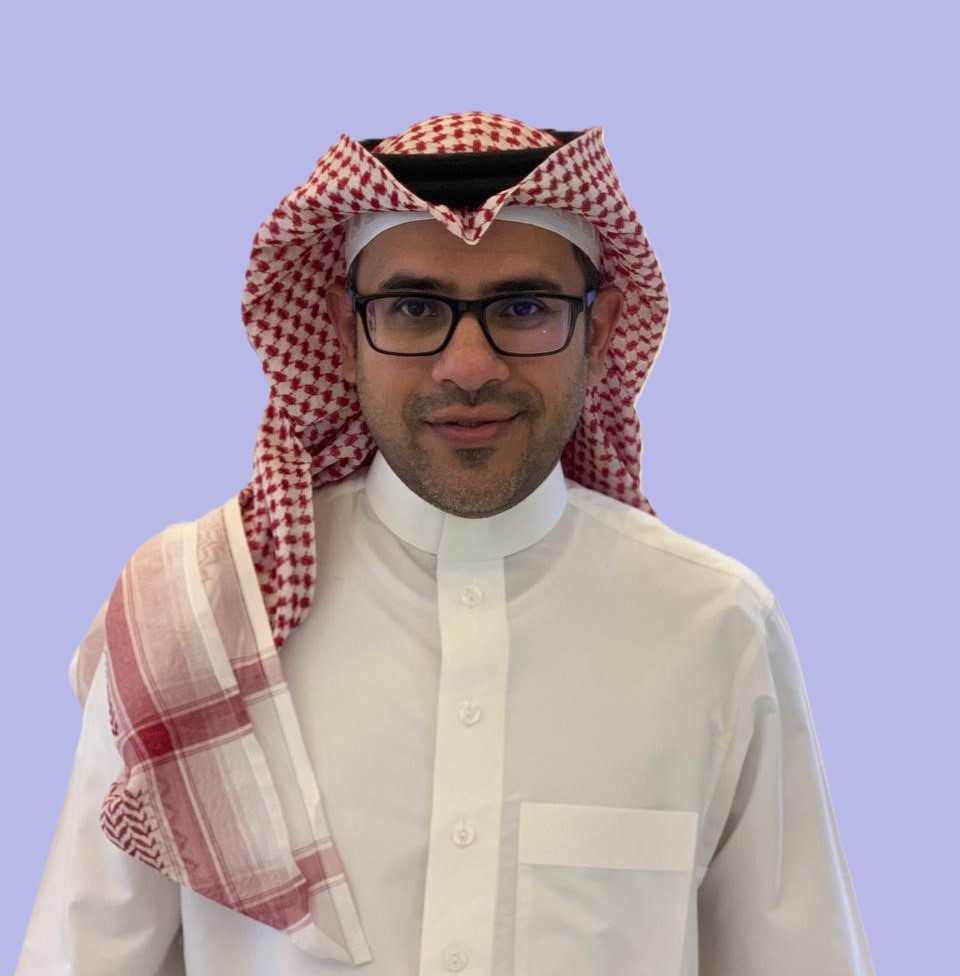
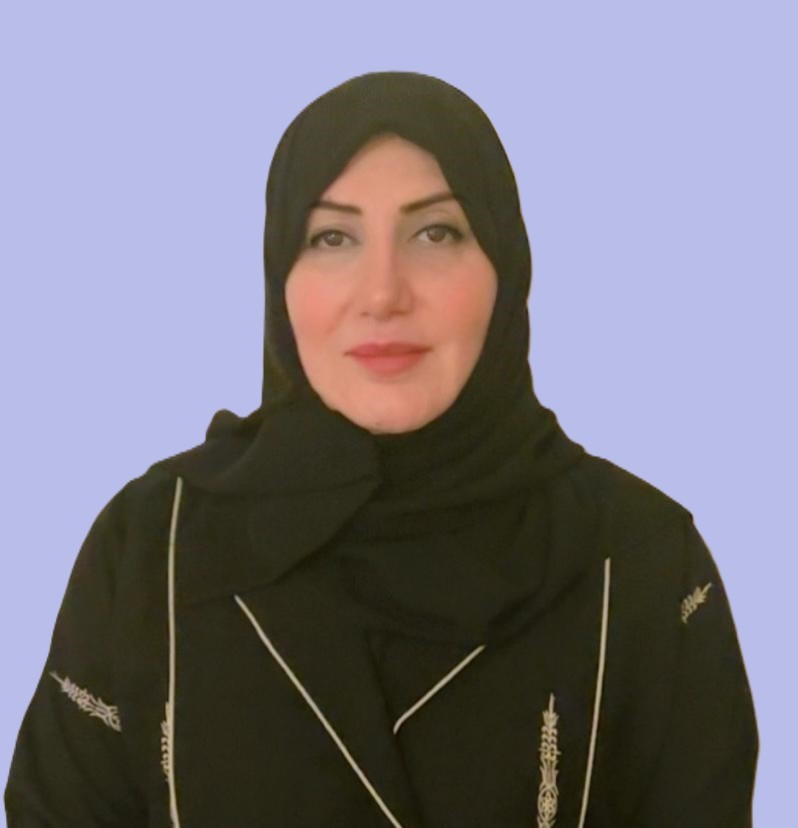
Presenters/Facilitators: Dr Abdul Aziz Aldalgan PhD & Dr. Huda Hassan PhD
Date: 2nd Dec 2025 | Time: 2:30 - 4:30 PM
Cost: 200 SAR
Target Audience: forensic toxicologists; toxicologists; forensic scientists; students attending forensic science programs
Prerequisites: Awareness of forensic toxicology
Maximum Participants: 30
Description:
In order to obtain the most accurate lab results, each aspect of the lab’s operations must be optimized to maintain reliability.
Workplace drug testing (WDT) is limited by many challenges, such as:
- Sample integrity
- Chain of custody
- Urine adulteration
- Stability and improper storage of samples
- Lack of training and competency testing
- Not following the policy and procedure
- Not performing the regular equipment maintenance
- Instrument not calibrated
- Lack of effective quality control program and Quality management system
- Interference: Several pharmacological factors used daily, are known to interfere with routine laboratory tests by pharmaco-toxicological and chemical reactions.
- Analytical method validation not done or not completed.
- New psychoactive substances (NPS)
In this workshop these challenges, several caseworks and different scenarios will be shared and discussed with the audience. Effective sample preparation methodologies of urine samples and the effective ways to enhance laboratory performance will also be discussed.

Presenters/Facilitators:Dr. Marta Diepenbroek (Institute of Legal Medicine LMU Munich, Germany)
Date: 2nd Dec 2025 | Time: 2:30 - 4:30 PM
Cost: 200 SAR
Target Audience:forensic geneticists; forensic scientists; students attending forensic science programs
Prerequisites: Awareness of forensic DNA typing
Maximum Participants: 20
Description:
Forensic DNA phenotyping (FDP) provides a valuable tool to predict externally visible characteristics, biogeographical ancestry (BGA) and biological age from DNA, offering investigative leads in both contemporary and historical cases. This workshop will introduce participants to the scientific foundations and applied methodology of FDP, with a strong focus on the interpretation and evaluation of phenotype predictions.
The workshop will start with the theoretical part during which the participants will hear a guided overview of the development of phenotype prediction in forensic genetics, followed by detailed discussions of selected studies that highlight key milestones in the field. Special emphasis will be placed on the role of BGA and its influence on the interpretation of physical appearance traits. Participants will then learn how to generate phenotypic predictions from genotypes using the HIrisPlex-S system, with step-by-step insights into data obtained via Massively Parallel Sequencing (MPS), and how to translate these genotypes into probabilistic trait predictions. The session will also address interpretation challenges, particularly in cases involving degraded DNA or mixed samples.
In the hands-on part of the workshop, participants will work with example genotypes to perform phenotype predictions themselves. This practical component will reinforce the theoretical content and provide participants with the tools to critically evaluate FDP results in real-world forensic contexts.
By the end of the workshop, participants will have gained an in-depth understanding of both the scientific principles and practical workflow involved in modern forensic DNA phenotyping.
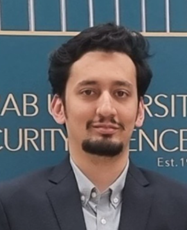
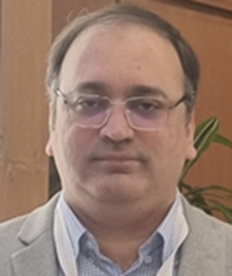
Presenters/Facilitators:Dr. Qazi Emad Ul Haq PhD and Mr. Muhammad
Date: 2nd Dec 2025 | Time: 2:30 - 4:30 PM
Cost: 200 SAR
Target Audience:Cybersecurity professionals; AI researchers; students in cybersecurity and AI-related fields; law enforcement involved in cybercrime investigations
Prerequisites: No prior experience in AI is required, and the session is designed to be accessible for forensic professionals, researchers, and students.
Maximum Participants: 20
Description:
This hands-on workshop introduces participants to the fundamentals of Artificial Intelligence (AI) and Machine Learning (ML) with a focus on forensic science applications. The session will cover essential AI/ML concepts, data preparation for forensic and real-world use cases.
Participants will use AI tools (such as Python-based libraries: scikit-learn, TensorFlow, and OpenCV, etc.) and will learn how to use machine learning models relevant to digital forensics. The workshop will also highlight emerging trends like Deep Learning and AI-driven predictive analytics in forensics.
No prior experience in AI is required, and the session is designed to be accessible for forensic professionals, researchers, and students.
Key Topics:
• Introduction to AI and ML: Concepts and Terminologies
• How AI is Transforming Forensic Science
• Data Collection and Preparation for Digital Forensic Applications
• Machine Learning Workflow: From Problem Definition to Model Evaluation
• Hands-on: Building a Simple ML Model for Forensics
• Overview of Emerging Trends: Deep Learning and Future Perspectives in Digital Forensics
Wednesday 3rd Dec 2025

Presenters/Facilitators:Prof Niamh Nic Daeid & Mr Vincenzo Rinaldi (Leverhulme Centre of Forensic Sciences, UK)
Date: 3nd Dec 2025 | Time: 2:30 - 4:30 PM
Cost: 200 SAR
Target Audience:forensic practitioners; forensic scientists; students attending forensic science programs; academic researcher/lecturer
Prerequisites: None
Maximum Participants: 60
Description:
The ability of a crime scene investigator to carry out the scientific and diagnostic endeavor of analyzing the scene of a crime relies on scientific knowledge, investigative methodology and logical reasoning. The competence of making observations, formulating and testing hypotheses is underpinned by a systematic, evidence-based and unbiased approach developed through education and accredited training. Bespoke continuous professional development and on-the-job experience are fundamental to maintaining high standards of technical knowledge and professionalism, while also encouraging greater collaboration. In recent years, particularly after the COVID-19 pandemic, virtual reality (VR) has been proven to provide solutions for increasing engagement and knowledge.
Notwithstanding the technical improvements, cost reduction and the increased adoption of VR systems, this technology presents risks that must be accounted for to become a fit-for-purpose instrument.
This workshop will explain the importance of having a scientific approach to the development of VR tools for forensic science. We will explore a new approach to image crime scenes using inexpensive, off-the-shelves devices, and how these images can be developed into crime scene representations. Participants will learn the risks and pitfalls associated with premature implementation of this technology, such as oversimplification, excessive gamification and bias.
The workshop will show the diverse use cases that can benefit from its utilisation, including but not limited to education, and training, with particular emphasis on the application of immersive VR technologies as an operational tool.
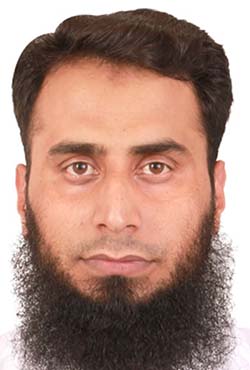
Presenters/Facilitators: Mr. Khalid Sajjad Feras MPhil
Date: 3nd Dec 2025 | Time: 2:30 - 4:30 PM
Cost: 200 SAR
Target Audience: Trace chemists; general chemists; forensic scientists; students attending forensic science programs
Prerequisites: Awareness of forensic chemistry
Maximum Participants: 25
Description: In this workshop, participants will unravel the crucial role that tiny traces such as Gunshot Residue (GSR), hair fibers, paint particles, explosive residue, and ignitable substances play in solving mysteries and uncovering the truth behind crimes. Every trace, invisible fiber or minuscule particle, holds valuable information waiting to be decoded by forensic experts. Through engaging presentations and hands-on activities, attendees will learn how trace evidence like GSR, hair fibers, paint particles, explosive residue, and ignitable substances can link suspects to crime scenes and/or victims, reconstruct events, and provide compelling insights into criminal investigations. Explore the cutting-edge techniques and methodologies forensic scientists use to analyze and interpret these silent witnesses effectively.
Whether you're a seasoned forensic professional, a curious enthusiast, or someone intrigued by the science behind crime solving, this workshop offers a unique opportunity to expand your knowledge and appreciation for the vital role that minute traces play in the pursuit of justice allowing participants to gain a deeper understanding of how these tiny fragments of evidence can make a monumental difference in solving crimes and bringing perpetrators to justice.
This workshop will also highlight the roles of SWGMAT, SWG-GSR, TWGFEX, OSAC, ASTM, and ISO in maintaining the admissibility of trace evidence analysis.
Don't miss this chance to unlock the secrets hidden in the smallest details and gain a deeper understanding of how forensic science transforms the unseen into undeniable evidence.

Presenters/Facilitators:Dr. Kyounggon Kim, Ph.D.
Date: 3nd Dec 2025 | Time: 2:30 - 4:30 PM
Cost: 200 SAR
Target Audience:Cybersecurity professionals; AI researchers; students in cybersecurity and AI-related fields; law enforcement involved in cybercrime investigations
Prerequisites: Basic knowledge of cybersecurity principles, machine learning techniques, and Python programming (familiarity with libraries such as NumPy, Pandas, and scikit-learn will be beneficial)
Maximum Participants: 20
Description:
This workshop highlights the critical connection between cybersecurity and artificial intelligence (AI), showcasing how AI-driven solutions are transforming the way we detect, analyze, and prevent cybercrime. The integrating of AI into cybersecurity is essential in today’s rapidly evolving threat landscape, where traditional methods struggle to keep up with the volume and sophistication of cyberattacks. Participants will explore how machine learning techniques can be used to identify patterns, predict emerging threats, and automate responses to cyber incidents.
For the hands-on part of the workshop, participants will work with the Phishing Websites Dataset for Machine Learning available on Kaggle, focusing on using machine learning algorithms to detect phishing websites. This practical component will reinforce the theoretical content, allowing participants to train models and gain insights into how AI can be applied in real-world scenarios. Through this, participants will learn how to leverage machine learning techniques to identify fraudulent and malicious website effectively.
By the end of the workshop, participants will have gained in-depth understanding of both the scientific principles and practical applications of AI in cybersecurity. They will also be able to critically evaluate AI-driven solutions in the context of real-world cybercrime scenarios, enhancing their ability to leverage AI tools to improve threat detection, incident response, and overall cybersecurity posture.
Thursday 4rd Dec 2025

Presenters/Facilitators: Dr. Farouq Alzahrani PhD and Dr Abdulaziz Aldubayan PhD
Date: 4th Dec 2025 | Time: 2:30 - 4:30 PM
Cost: 200 SAR
Target Audience:Forensic toxicologists; toxicologists; forensic scientists; students attending forensic science programs
Prerequisites: Awareness of forensic toxicology
Maximum Participants: 30
Description: Workplace drug testing is a critical component in ensuring safety, discipline, and operational readiness within military institutions. This workshop, will provide an in-depth exploration of the current status of workplace drug testing across four key military entities: the Ministry of Interior, the Ministry of National Guard, the Ministry of Defense, and the Presidency of State Security. The session will feature insights from esteemed experts, including Dr. Farouq Alzahrani, who will represent both the Ministry of Interior and the Presidency of State Security, alongside two additional specialists from the Ministry of National Guard (TBD) and the Ministry of Defense (Dr Abdulaziz Aldubayan). Each speaker will deliver a 20-minute presentation, offering a comprehensive overview of their respective institution’s drug testing model— covering every stage from sample collection, analytical methodologies, reporting processes, and the handling of result appeals through medical review procedures. Following these institutional case studies, the workshop will dedicate 40 minutes to key advancements and challenges in military workplace drug testing. Topics of discussion will include: • Hair testing as an alternative biological matrix in workplace drug testing: its potential advantages, forensic reliability, and regulatory considerations. • Limitations and current position on Point of Care Testing (POCT): assessing its utility, reliability, and role in military settings. • Screening cutoffs for each class of drugs: the rationale behind cutoffs and their implications for detection windows and interpretation. • Classes of drugs to be included in the immunoassay screening panel: ensuring comprehensive detection strategies while maintaining efficiency and accuracy. The final 20 minutes of the workshop will be dedicated to an interactive open discussion with the audience, allowing participants to engage with the speakers, share insights, and address pressing challenges in workplace drug testing policies and implementation. This session will serve as a valuable forum for fostering dialogue among forensic toxicologists, security professionals, and policymakers, facilitating knowledge exchange and identifying pathways for future improvements in drug testing strategies across military institutions.

Presenters/Facilitators:Dr. Kyounggon Kim, Ph.D.
Date: 4th Dec 2025 | Time: 2:30 - 4:30 PM
Cost: 200 SAR
Target Audience:Law enforcement involved in cybercrime investigations and financial investigations, students in cybercrimes and financial crimes related fields
Prerequisites: Basic knowledge of cryptocurrency principles will be beneficial.
Maximum Participants: 20
Description:
Cryptocurrency is increasingly exploited for illicit activities such as illicit trade, ransom payments, terrorism financing, and money laundering. However, the transparent and publicly accessible nature of most cryptocurrency blockchains allows for the tracing and analysis of transactions. This capability can reveal crucial details that may lead to the identification of the criminals behind these activities.
Participants in this workshop will gain an understanding of the cryptocurrency characteristics exploited in illicit activities and develop practical skills to investigate cryptocurrency transactions through real case scenarios. The hands-on exercises will immerse participants in using cutting-edge cryptocurrency transaction investigation tools to profile addresses, track transactions, and assess the potential for identifying involved criminal actors.

Presenters/Facilitators:Dr. Fahad I. Aldosari, Ph.D. in Forensic Science
Date: 4th Dec 2025 | Time: 2:30 - 4:30 PM
Cost: 200 SAR
Target Audience:law enforcement personnel, forensic professionals, and anyone engaged in criminal inquiry, students attending forensic science programs and academic researcher/lecturer.
Prerequisites: Basic knowledge of cryptocurrency principles will be beneficial.
Maximum Participants: 60
Description:
This intensive workshop is designed to enhance creative thinking skills in criminal investigation. Participants will explore how investigation is not merely a procedural task but a scientific and systematic process that depends heavily on logical reasoning and the ability to form meaningful connections between facts. The core of the workshop is summarized in two guiding principles:
Scientific thinking and organized deduction, grounded in four essential pillars:
1. Science – building on forensic principles and physical evidence.
2. Structure – following a clear, step-by-step methodology
3. Correlation – identifying links between people, objects, and actions.
4. Logic – applying analytical reasoning over assumptions or intuition.
Using the symbolic phrase: “المفتش عمر” (Inspector Omar), the workshop will guide participants in developing an investigative mindset rooted in curiosity, structure, and strategic questioning.
Through interactive case scenarios, participants will learn how to:
- Think beyond the obvious.
- Question deeper with intent.
- Recognize deceptive simplicity in crime scenes.
- Use “what if?” creatively during hypothesis testing.
The workshop is ideal for law enforcement personnel, forensic professionals, and anyone engaged in criminal inquiry who seeks to sharpen both their analytical and creative thinking capabilities